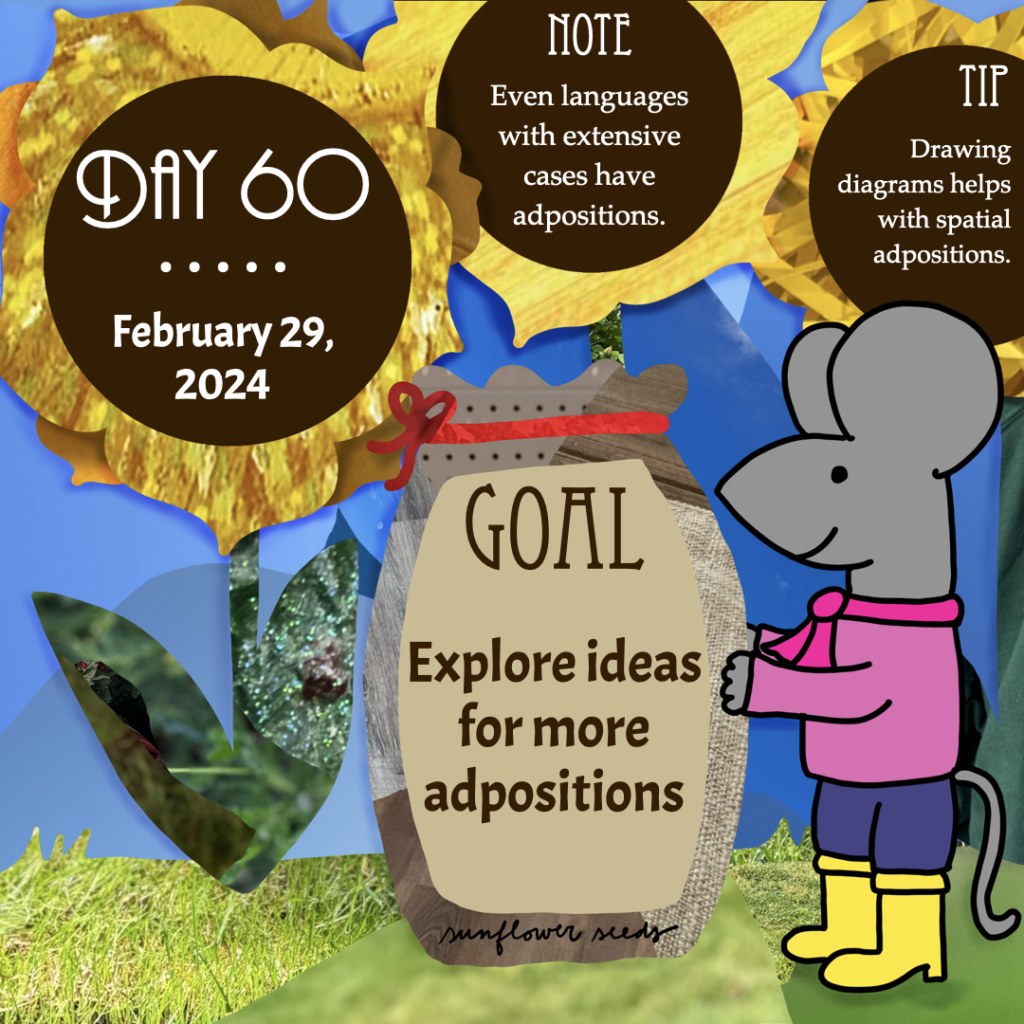
Goal: Explore ideas for more adpositions
Note: Even languages with extensive cases have adpositions.
Tip: Drawing diagrams helps with spatial adpositions.
Work focus: Learn/Brainstorm/Try
Now that basic nominal inflections are covered, it’s time to expand other strategies for expressing relationships for noun phrases. Adpositions are grammaticalized function words that provide relational information—they indicate the relationship of their object noun phrase to another noun phrase or a verb phrase or even a full clause. “Adposition” as a term covers both prepositions (which occur before their object noun phrase) and postpositions (which occur after their object noun phrase). Even if a language has extensive case-marking, it can still have adpositions to cover an even larger variety of relationships than case alone can provide. Whether your language has prepositions or postpositions (or both) depends on the lexical sources you choose for the adpositions and your language’s word order.
Some of the most basic kinds of adpositions provide spatial information—these spatial adpositions are often then extended to cover a variety of other semantic meanings. For instance, consider the prepositions after and before in English. They provide spatial information but are also used to indicate temporal relationships.
A good way to start a list of potential adpositions for your language is to begin with spatial relationships and a diagram indicating the relationships you want to create words for. You get to decide if you want a different word to indicate relationships like “on, over, on top of” or “into, in, inside” and so on. Spend today exploring options for the kinds of relationships you want to create adpositions for and potential lexical sources for them (often nouns or verbs).
